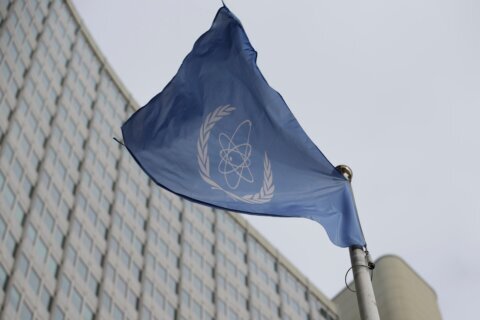Most signs of testicular cancer don’t involve pain.
Most men don’t like to think about testicular cancer — which can put them in jeopardy of missing signs they have it. “It’s an easy subject to sweep under the rug, since it can be less than comfortable for a majority of men to talk about,” says Dr. S. Adam Ramin, a urologic surgeon and medical director of Urology Cancer Specialists in Los Angeles. “The tricky part of spotting these symptoms is that, for the most part, they’re subtle. Most men are alerted by pain; they believe if it doesn’t hurt, nothing’s wrong. For testicular cancer, this is the No. 1 misconception.” The most common testicular cancer symptoms, he says, don’t involve pain.
An unexpected cancer diagnosis.
When Scott Petinga noticed his left testicle was more than twice the size of his right one, he went to a doctor. It turned out that his left testicle was normal-sized, but the smaller, right one was cancerous. “It essentially was disintegrating,” Petinga, 44, says. “We always think of cancer as enlargement but that wasn’t the case.” The Minneapolis man says he learned he had stage 1 testicular cancer and received radiation treatment. Now in remission, Petinga advocates for men to conduct monthly self-examinations and to be aware of all possible signs of testicular cancer, which is highly treatable. Here are eight possible symptoms to watch for:
A change in the size of your testicles
Testicular cancer initially develops within one of the testicles as a small, firm and irregular mass that’s as hard as a marble, with the same consistency. The surface of this mass is smooth and bumpy. As it continues to grow, it will deform the entire testicle, causing it to become larger than the normal one. As Petinga learned, a shrinking testicle can also be a sign of testicular cancer. “It’s not common, but it can happen,” says Dr. Timothy Gilligan, a medical oncologist at the Cleveland Clinic.
Breast tissue growth or soreness
Growth of breast tissue or tender breasts may be a sign of testicular cancer, Gilligan says. All men have breast tissue, which is usually small because their levels of testosterone are much higher than their levels of estrogen. If you’re a man and your breast tissue begins to swell, with the areas around the nipples becoming more prominent, it could be an indication that your breast tissue is growing. Men will notice a lump of tissue in the middle of the breast, Ramin says. The portion of the breast that contains the nipple and areola will no longer be flat, but raised and protruding out. Touching the nipples will cause an achy or piercing pain in the area, he says.
Heaviness in your scrotum
In some cases of testicular cancer, a large amount of fluid develops around the cancerous testis, Ramin says. This buildup of fluid causes progressive enlargement of the scrotum, which in turn leads to a feeling of heaviness in that area. It’s typically not a sharp or stabbing pain, but a deep, dull ache or a heaviness. Sudden severe pain in the scrotum or in the testicles is more than likely not connected to testicular cancer, says Dr. Matthew Campbell, assistant professor of genitourinary medical oncology at the University of Texas MD Anderson Cancer Center. Sharp pain in the testicles or in the scrotum area can be caused by a number of conditions, including diabetic neuropathy, kidney stones or a urinary tract infection, according to the Mayo Clinic.
Lower back pain
Lower back pain that’s not associated with exercise and doesn’t get better with the use of anti-inflammatory medication could be a sign of testicular cancer, says Dr. Phillip Pierorazio, associate professor of urology and oncology at Johns Hopkins Hospital in Baltimore. Cancer cells could settle on lymph nodes near the kidney and enlarge, impinging on nerves in the back. “It’s kind of the first landing zone for any cancer that originates in the testicles,” he says.
Unexplained weight loss
The testicles drain into the abdominal lymph nodes, which can enlarge them and cause people to feel full and lose weight, says Dr. Barry Kaplan, president of Queens Medical Associates and a clinical associate professor at Weill Medical College of Cornell University in New York City. If you’ve lost weight without dieting and have no other obvious medical explanation, it may be attributable to testicular cancer or other types of cancer or illness, such as diabetes, heart failure, tuberculosis or Addison’s disease, according to the Mayo Clinic. If you experience sudden unexplained weight loss, see your physician.
A persistent cough
Testicular cancer cells are aggressive and could work their way into the bloodstream and into the lungs, causing a persistent cough that lasts more than two weeks, Kaplan says. “It has to do with the ability of this kind of cancer to spread quickly and find a home in other parts of the body,” he says.
A seizure
One of the places testicular cancer cells can spread is the brain, Kaplan says. “A seizure and a brain lesion could be the first sign of testicular cancer,” he says. Men who suffer such symptoms should have their physician investigate testicular cancer as a possible cause.
Pain or physical discomfort
Most possible signs of testicular cancer don’t involve pain in or near the testicles, but a small percentage of cases do, says Dr. Scott Tagawa, an associate attending physician at NewYork-Presbyterian — Weill Cornell Medical Center. “While most tumors do not cause significant pain, a fraction cause pain or at least a dull ache,” he says. Pain in or near the testicles could be caused by a wide array of causes, including diabetic neuropathy (nerve damage caused by diabetes), kidney stones or a urinary tract infection, according to the Mayo Clinic. If you experience any of these possible symptoms for testicular cancer, see your doctor for an evaluation.
More from U.S. News
7 Things You Didn’t Know About Lung Cancer
10 Things Younger Men Should Know About Prostate Cancer
What Causes Cancer? 5 Unlikely Claims Explained
8 Possible Signs of Testicular Cancer originally appeared on usnews.com







